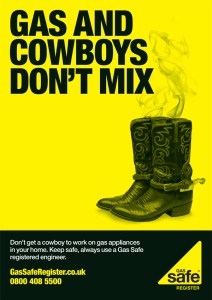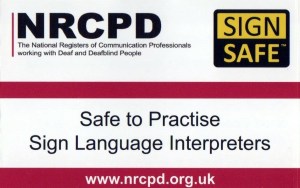 This blog has long recorded the effects privatisation on the interpreting industry. We know that one of the so-called big four companies who run the infrastructure of the UK, Capita, has made inroads into the interpreting market after buying out a small company, ALS, and taking on the MoJ contract in 2011, a mere four months after the contract was awarded.
This blog has long recorded the effects privatisation on the interpreting industry. We know that one of the so-called big four companies who run the infrastructure of the UK, Capita, has made inroads into the interpreting market after buying out a small company, ALS, and taking on the MoJ contract in 2011, a mere four months after the contract was awarded.
We saw last year a surprise leak about Capita’s shocking charges to the MoJ for interpreting services, only a fraction of which gets paid to its suppliers – the interpreters who fulfil the contract for them.
One of the known problems, that still reoccurs in government contracting, is a reluctance to recognise the already existing registers of interpreters. Both ALS and Capita, believed they could create their own register with little knowledge of the interpreting industry. Their version of a register was little more than a list of names of people who had self-declared they could interpret rather than having qualifications and experience.
Why is this relevant now? The subject needs to be raised of the independence of existing registers/regulators and statutory regulation. NRPSI (National Registers of Public Service Interpreters) went through a tricky time prior to its independence in 2011 from its then owners, the Chartered Institute of Linguists. ALS had paid to subscribe to the register and used these details to falsely inflate the number of interpreters on its books in order to win the MoJ contract. NRPSI is clearly independent now and operates in a different way. What about NRCPD (National Registers of Communication Profesisonals for Deaf and Deafblind People)? It is still tied to Signature A.K.A CACDP who have used all sorts of excuses not to be independent (litigation – insurance covers that and costs – see lack of transparency of accounting practices).
NRCPD, despite admitting they could not pass the standards put in place by the PSA who oversee voluntary registers, is now chasing statutory regulation. This goes against the government’s agenda. One fact sheet states:
“The Government’s view is that high standards for these occupational groups and others can be assured without imposing statutory regulation, with a key role to be played by employers. That is why, in the wider context of supporting providers, we are creating, through the Health and Social Care Act, a system of external quality assurance.” Support Worker Regulation Factsheet, April 2012
Let’s return to another subsidiary of Capita: Capita Gas Registration and Ancillary Services Limited who runs the Gas Safe Register. How has it come to run the register? In 1998, the government passed legislation regarding gas safety: Gas Safety Regulations. The Health and Safety Executive reports CORGI ran the register of accredited gas engineers until 2008 when Capita bid and won the second generation contract to run the register for ten years. Even Wiki states that standards fell when Capita took over and profits meant that candidates now just passed a qualification whereas with CORGI they also had to pass an interview held by an inspector.
This is an example of how you can push through statutory regulation for what people think is the greater good, for public protection, but then your industry lands up in the hands of a private company anyway.
It is an irony that in December 2012 NRCPD decided to name its campaign SignSafe. Or is it?

 Brett Best is an English/ASL/BSL interpreter based in London and working globally. She is particularly interested in the development of the interpreting profession and establishing strong relationships between signed language interpreters and the Deaf community.
Brett Best is an English/ASL/BSL interpreter based in London and working globally. She is particularly interested in the development of the interpreting profession and establishing strong relationships between signed language interpreters and the Deaf community.